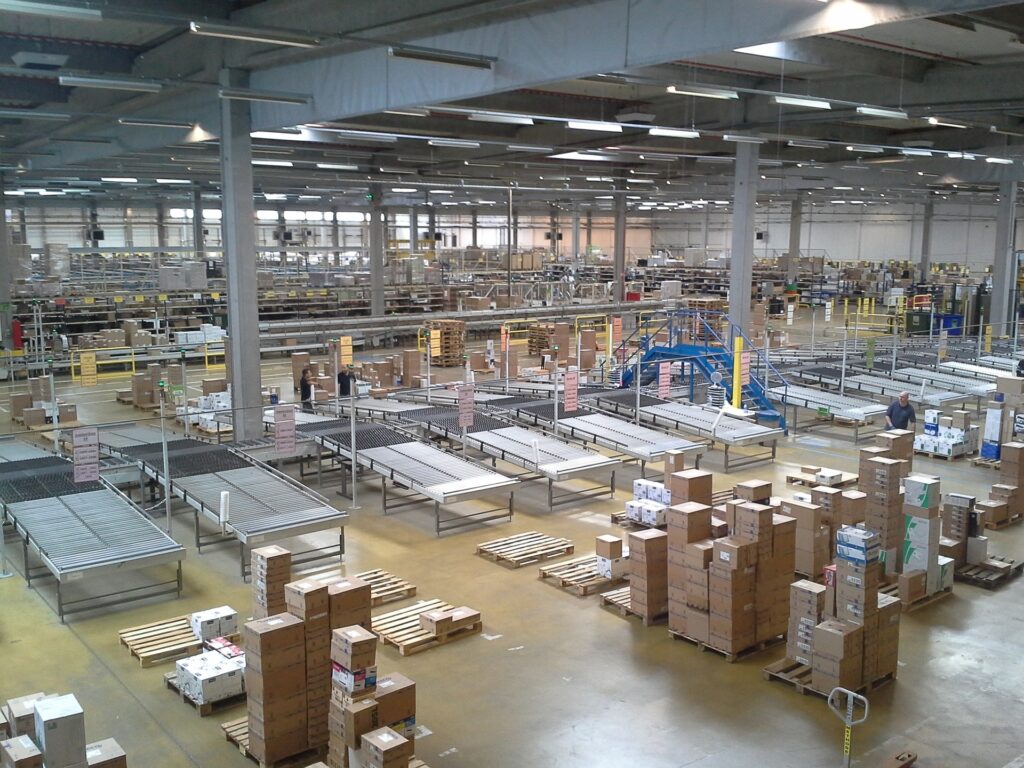I’ve been asked this question several times: what can we push to finished product warehouse using only materials and components that
we already have in house? This question may arise for different reasons: late supplies, problems with paying suppliers, will to consume
certain types of materials. In any case it’s not trivial to solve this problem in an optimal way and it’s not feasible to solve it in a satisfying
way with usual production planning software. An approach that is easy to follow with Cowry for a sub-optimal but good solution is this: create
forecast records for one piece for every finished product beside current customer orders, run MRP, fully peg the forecast records and mark the ones not linked (directly or indirectly)
to purchase orders, increase these forecast records by a predefined amount and run again mrp and pegging until there is no increasable forecast record.
At the end of the process you’ll get the list of forecast records deliverable with in house material.
Of course this approach could be refined considering capacity constraints using the finite capacity features of Cowry or your APS’.
Blog

Make and don’t buy

Finite and infinite capacity planning
Somebody thinks that infinite capacity planning is just a limit of production planning software and its heuristics. At the contrary it has much sense.
Infinite capacity planning is for verifying the extra capacity requirements and only checking this we can decide to add internal capacity, buy outside
capacity or shift loads in time, maybe accepting delivery delays. So finite capacity planning/scheduling should always follow infinite capacity planning/scheduling.
Some APS packages, like Cowry, allow the users to combine finite and infinite capacity planning setting different constraints for different departments.
For example it is possible to plan upstream shops at finite capacity and downstream ones at infinite capacity, then adjusting capacity for the downstream
shop and finally calculate a single plan with both the
upstream and downstream shops at finite capacity.

Deliver fresh news
Duis mollis, est non commodo luctus, nisi erat porttitor ligula, eget lacinia odio sem nec elit. Integer posuere erat a ante venenatis dapibus posuere velit aliquet. Donec ullamcorper nulla non metus auctor fringilla.
Ut enim ad minima veniam, quis nostrum exercitationem ullam corporis suscipit laboriosam, nisi ut aliquid ex ea commodi consequatur.
Nunc blandit tincidunt consequat. Duis diam metus, suscipit in pulvinar eget, egestas id arcu. Duis a enim vel mauris ultrices. Nullam aliquet velit ac velit tempus in semper neque auctor. Aenean ligula mi, auctor sed tempus ultrices, semper tempus diam.
Lorem ipsum dolor sit amet, consectetur adipisicing elit, sed do eiusmod tempor incididunt ut labore et dolore magna aliqua. Ut enim ad minim veniam, quis nostrud exercitation ullamco laboris nisi ut aliquip ex ea commodo consequat. Duis aute irure dolor in reprehenderit in voluptate velit esse cillum dolore eu fugiat nulla pariatur.
Etiam pellentesque, suscipit in pulvinar eget placerat, leo leo consequat ante, non iaculis turpis augue ac ligula. Nunc blandit tincidunt consequat. Duis diam metus, suscipit in pulvinar eget, egestas id arcu. Duis a enim vel mauris ultrices. Nullam aliquet velit ac velit tempus in semper neque auctor. Aenean ligula mi, auctor sed tempus ultrices, semper tempus diam.

Future design concept
Ut enim ad minima veniam, quis nostrum exercitationem ullam et suscipit laboriosam, nisi ut aliquid ex ea commodi consequatur. Et mollis, est non commodo luctus, nisi erat porttitor ligula, eget lacinia odio sem nec elit. Integer posuere erat a ante venenatis dapibus posuere velit aliquet. Donec ullamcorper nulla non metus auctor fringilla.

